#Economics Classes
Explore tagged Tumblr posts
Text


Source
“Rent prices have exceeded income gains by 325 percent”
#eat the rich#homelessness#end homelessness#capitalism#socioeconomic inequality#the left#progressive#economic inequality#current events#news#working class#income inequality
37K notes
·
View notes
Text
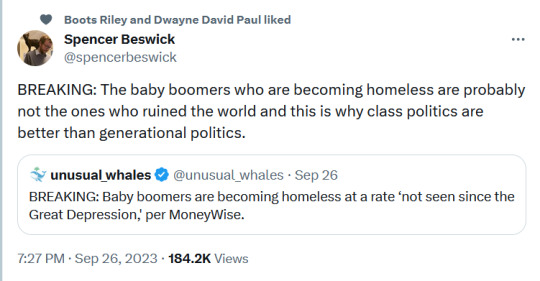
#twitter#tweet#tweets#boomers#economics#economy#homeless#class politics#generational politics#class#inequality#wealth inequality
61K notes
·
View notes
Text
Gary Stevenson: ‘Economists have been all wrong about almost everything for 15 years now’
#gary stevenson#economics#economy#the economist#economists#wrong#everything#ausgov#politas#auspol#tasgov#taspol#australia#fuck neoliberals#neoliberal capitalism#anthony albanese#albanese government#capitalism#anti capitalist#washington capitals#capitalist hell#capitalist dystopia#capitalist bullshit#eat the rich#eat the fucking rich#class war#anti capitalism#anticapitalista#anti capitalist love notes#anticapitalistically
6K notes
·
View notes
Text

#art#feminism#feminist#illustration#capitalism#unhoused#housing#housing justice#class struggle#class solidarity#economic justice#social justice#drawing
2K notes
·
View notes
Text
Billionaires destroy more than they create
In a land often championed for its economic opportunity and equality, the American Dream promises that anyone who works hard can rise to prosperity. But for many in today’s middle and lower economic classes, that dream is fading, shadowed by a reality that feels increasingly rigged. At the heart of this issue lies a stark and glaring imbalance: billionaires, a minuscule fraction of the population, wield a staggering concentration of wealth and influence. This is not just an issue of economics but one that touches the foundations of democracy and fairness.
Imagine the economy as a massive machine, built to churn wealth throughout society. In an ideal world, this wealth would cycle effectively, where each part contributes and benefits in turn. But as billionaires amass wealth at unprecedented levels, this machine has come to function more like a funnel, siphoning resources from the broader society and concentrating them at the very top. This dynamic, driven by complex financial structures and tax strategies, isn’t merely an accumulation of personal fortunes but a systematic extraction from the economic potential of others. The capital that could have flowed through wages, education, and public infrastructure is often diverted into private bank accounts and shell companies, rarely benefiting the people who drive and build the economy day by day.
As wealth accumulates at the top, so too does political influence. Billionaires, with vast financial resources, can fund political campaigns, lobbyists, and entire networks of think tanks dedicated to shaping policy. Through these channels, they push for tax policies, regulations, and trade agreements that benefit the ultra-wealthy at the expense of middle- and lower-income families. Politicians, indebted to these donors, increasingly look to billionaire interests rather than to constituents’ needs. This creates a disturbing feedback loop: billionaires influence politics to further policies that reinforce their own wealth and power, leaving the broader populace with dwindling opportunities to influence their own government.
This concentrated power extends far beyond campaign finance and lobbying. With ownership over significant segments of media networks, billionaires control the narratives that millions consume daily. Through these media outlets, they shape public opinion, diverting attention from policies that would challenge wealth accumulation and pushing narratives that frame the ultra-wealthy as essential “job creators” or “innovators” rather than acknowledging their role in widening economic divides. Issues that might threaten their economic stranglehold are often buried, while others, that create division and distract, are amplified.
For the middle and lower classes, this confluence of wealth, media, and political power has a real impact. Stagnant wages, diminishing job security, and rising costs of living aren’t natural outcomes of a complex economy—they’re symptoms of a system shaped to benefit those at the top. Policies that could lift working-class Americans, like raising the minimum wage, universal healthcare, or better labor protections, are often stifled in legislative deadlock, thanks in part to the political influence of the ultra-wealthy who stand to lose from them.
So, as this cycle continues, the gap between billionaires and everyone else widens. The billions accumulated at the top no longer signify mere success but a barrier to mobility for everyone else. The middle and lower classes find themselves carrying the economic burdens, often working harder for less. Meanwhile, billionaires remain insulated, living in a different economic reality, one far removed from the struggles of the average American. This isn’t just an economic imbalance but a distortion of democracy itself, as the machinery of power and influence is pulled further from the reach of ordinary citizens and held more tightly by those whose interests rarely align with theirs.
Without addressing this imbalance, the promise of opportunity, the cornerstone of the American Dream, becomes less attainable with each passing year, not just for the lower and middle classes but for the nation’s future as a whole.
Addressing their manipulation
Billionaires and their advocates often employ a familiar set of narratives to justify their wealth and the structures that enable it. These arguments, framed in terms of the free market, capitalism, or fear of socialism, are not only misleading but often serve to distract from the deeper systemic issues at play. Below is a breakdown of these claims and the counterarguments that expose their flaws:
1. “It’s Just the Free Market at Work”
The myth of the “free market” implies that billionaires achieve their wealth purely through talent, innovation, and competition in a market where everyone has equal opportunity. But in reality, the U.S. economy is far from a genuinely “free” market.
Counterpoints:
• Government Subsidies and Tax Breaks: Many billionaires’ businesses rely heavily on taxpayer-funded subsidies, special tax breaks, and other forms of government assistance. Large corporations frequently lobby for policies that grant them tax advantages, including offshore loopholes and capital gains tax breaks. This creates an environment where they aren’t competing on equal ground but rather with significant state support, distorting the market in their favor.
• Anti-Competitive Practices: Many large corporations, especially in tech and finance, engage in monopolistic behavior, buying out competitors or using aggressive tactics to drive them out of the market. This concentration of power stifles competition, contradicting the notion of a “free” market where anyone can succeed if they work hard.
• Inherited Wealth and Privilege: A significant portion of billionaire wealth is inherited rather than self-made. Generational wealth compounds, giving the ultra-wealthy an enormous head start over those without similar family resources. This challenges the idea that wealth accumulation is simply the product of individual merit or a fair market.
2. “This Is What Capitalism Is Supposed to Look Like”
The argument here suggests that capitalism is an inherently competitive system, where the most successful rise to the top, benefiting everyone through innovation and job creation. This narrative hinges on the idea of “trickle-down economics,” where the wealth of the richest eventually spreads throughout society.
Counterpoints:
• Trickle-Down Economics Doesn’t Work: Decades of evidence show that wealth rarely “trickles down” to the rest of society in any meaningful way. Income inequality has only widened, with wages stagnating for most workers while billionaire wealth has soared. Billionaires tend to reinvest wealth in ways that concentrate their holdings, like in stocks, rather than in ways that benefit the broader economy.
• Wealth Extraction, Not Wealth Creation: Many billionaires achieve and maintain their fortunes through rent-seeking behavior—extracting wealth from existing resources rather than creating new value. Hedge funds, private equity, and real estate empires often profit by cutting costs (like labor) rather than by innovating or producing new goods and services. This dynamic benefits investors but hurts workers and consumers.
• Capitalism Can Take Other Forms: The capitalism practiced in the U.S. today, sometimes called “neoliberal capitalism,” focuses on minimal regulation, tax cuts for the wealthy, and privatization. However, other countries demonstrate that capitalism can function with stronger social safety nets, wealth redistribution policies, and tighter regulations on corporate power. Nordic countries, for example, balance capitalism with robust welfare systems, ensuring a more equitable distribution of wealth and services.
3. “Without Billionaires, There Would Be No Innovation or Job Creation”
A popular myth is that billionaires are essential “job creators” and “innovators” whose wealth ultimately benefits society by funding new businesses and creating employment. This claim positions billionaires as indispensable to economic growth.
Counterpoints:
• Public Funding Fuels Innovation: Many of the biggest technological advances, including the internet, GPS, and medical breakthroughs, were developed with public funding rather than billionaire investments. Government research grants and subsidies often lay the groundwork for major innovations that billionaires later profit from. In other words, society bears much of the financial risk, while billionaires reap the rewards.
• Small Businesses Create Most Jobs: Small businesses, not billionaires or large corporations, are responsible for most job creation in the United States. Big corporations often eliminate jobs through automation, outsourcing, or consolidation. They may employ a large workforce, but they also tend to exploit workers through low wages, precarious employment, and cost-cutting measures.
• Billionaires Accumulate Wealth Through Wealth, Not Innovation: Many billionaires maintain their wealth not by creating jobs or innovating but by using their existing capital to generate more wealth, often through financial instruments that have little to do with actual economic productivity. Stock buybacks, dividends, and passive investments grow their fortunes without necessarily contributing to broader economic prosperity.
4. “Any Alternative Is Socialism or Communism”
When calls arise for higher taxes on the wealthy, stricter regulations, or broader social programs, the response is often to invoke the fear of “socialism” or “communism.” This argument seeks to paint any attempt at wealth redistribution or regulation as a slippery slope toward total government control.
Counterpoints:
• Social Safety Nets and Regulations Are Not Socialism: Social safety nets, progressive taxation, and regulations do not equate to socialism or communism; they’re features of a balanced capitalist system that seeks to prevent extreme inequality and protect public welfare. Countries like Germany, Canada, and Denmark combine regulated capitalism with strong social programs, resulting in healthier economies and greater well-being for citizens without abandoning capitalism.
• Inequality Threatens Capitalism: Growing inequality and economic instability can undermine the foundations of capitalism. A healthy capitalist economy requires a strong middle class with buying power, which excessive wealth concentration undermines. Reforms like progressive taxation, labor protections, and universal healthcare aren’t a rejection of capitalism but rather a means of stabilizing it.
• Historical Success of Mixed Economies: Many of the most successful and prosperous countries practice a mixed economy, where capitalism coexists with social policies that promote equality. The U.S. itself has employed a mixed economy model in the past, particularly after the New Deal, which implemented social safety nets, labor protections, and financial regulations that led to a period of unprecedented growth and prosperity for the middle class.
5. “They Earned It Fair and Square”
Finally, the idea persists that billionaires deserve their wealth because they “earned” it. This argument suggests that any policy aiming to redistribute wealth is fundamentally unfair, penalizing those who worked hard to succeed.
Counterpoints:
• Systemic Advantages and Wealth Hoarding: As previously mentioned, many billionaires begin with advantages—like family wealth or elite educational opportunities—that aren’t available to most people. Additionally, billionaires often employ complex strategies to avoid taxes, lobby for favorable regulations, and capitalize on government subsidies. These factors mean they haven’t earned wealth solely through hard work or merit.
• Billionaires Didn’t Build Alone: No billionaire operates in isolation; they rely on infrastructure, public education, and the work of thousands or millions of employees. A CEO’s wealth is made possible by a web of collective contributions, yet that wealth is rarely shared equitably. While billionaires might be rewarded for their role, their fortune is far from the result of individual effort alone.
In short, these narratives around billionaires often mask a more uncomfortable truth: today’s system is structured in ways that favor the ultra-wealthy at the expense of the broader population. Economic reform, rather than a threat to capitalism, is a necessary step to ensure a more just, equitable society where wealth accumulation doesn’t depend on privilege, influence, or systemic manipulation.
Making a change
Addressing the economic imbalance and the unchecked power of the ultra-wealthy presents a unique challenge, especially given the intense political polarization in the United States. For the middle and lower classes to push back effectively, they will need to build a coalition that transcends party lines and focuses on shared economic interests rather than divisive rhetoric.
1. Build Awareness Through Shared Issues, Not Ideology
The rhetoric around “free markets” and “socialism” often obscures real issues of economic struggle that affect both conservative and progressive working- and middle-class citizens alike. Instead of framing the issue in ideological terms, framing it in terms of tangible, shared grievances can help bridge the divide:
• Focus on Economic Inequality: Income stagnation, unaffordable healthcare, and housing insecurity are felt across the political spectrum. By shifting the narrative from “class warfare” to “economic fairness,” advocates can sidestep partisan language and emphasize the shared experience of economic struggle.
• Highlight the Impact of Corporate Power on Local Communities: Framing issues around how large corporations hurt small, local businesses can resonate strongly with both sides of the political spectrum. This approach often taps into conservative values around community and self-reliance, while also aligning with progressive critiques of corporate overreach.
2. Organize Around Labor Rights and Worker Protections
Historically, unions have been instrumental in improving working conditions and advocating for fair wages, and labor movements transcend political divisions. Many Americans—left, right, and center—share concerns about the erosion of workers’ rights, stagnant wages, and the declining influence of the average worker.
• Expand Union Participation and Labor Movements: Reinvigorating unions and expanding labor protections could give workers a stronger collective voice. New labor movements that focus on economic rights without overtly partisan language could attract support across the political spectrum, particularly when they champion issues like fair wages, workplace safety, and job security.
• Support Worker Cooperatives and Employee-Owned Businesses: Promoting models like worker cooperatives or employee-owned businesses can offer a compelling alternative to the current structure of corporate ownership without resorting to divisive rhetoric. These models prioritize local control and shared economic benefits, appealing to values of self-sufficiency and fairness.
3. Pressure Politicians on Key Economic Policies
A key to bridging the partisan gap is to focus on policies that benefit the broader populace rather than framing them as part of any ideological agenda. The majority of Americans, regardless of political affiliation, support policies like fair taxation, healthcare reform, and increased access to education when framed in terms of fairness and opportunity.
• Promote Tax Reform as “Fairness,” Not Redistribution: Instead of advocating for “redistribution,” proponents can push for tax policies that ensure everyone pays their fair share. Policies like a wealth tax or higher taxes on capital gains can be framed as holding the ultra-wealthy accountable rather than demonizing them, a stance that resonates with people who value fairness and personal responsibility.
• Advocate for Antitrust Legislation: Pushing for stronger antitrust laws to break up monopolies and prevent anti-competitive practices can appeal to both sides. For conservatives, this aligns with the values of market competition; for progressives, it aligns with corporate accountability and consumer protection.
4. Engage in Alternative Media and Independent Journalism
The ultra-wealthy often own or influence major media outlets, which can shape public opinion in ways that protect their interests. For the middle and lower classes to gain a clearer view of economic issues, alternative media sources and independent journalism that aren’t beholden to billionaire interests are crucial.
• Support Independent News Outlets: A growing number of independent news organizations are dedicated to in-depth economic reporting without catering to corporate interests. Supporting these outlets allows individuals to access a range of perspectives that help reveal the true impact of policies on ordinary people.
• Utilize Social Media Responsibly to Build Cross-Party Awareness: Social media, while often a divisive force, can also be used to spread information about economic injustice. When used responsibly to share facts, case studies, and stories of economic hardship, it can cut through the rhetoric and provide people across the political spectrum with a shared understanding of the issues.
5. Prioritize Voting Reform and Campaign Finance Reform
Money in politics is one of the core reasons why economic policies favor the wealthy. Bipartisan support for reducing corporate influence in politics is possible, especially when the focus is on fairness, transparency, and accountability in government.
• Promote Campaign Finance Reform as an Anti-Corruption Effort: Campaign finance reform, which seeks to limit the influence of wealthy donors and corporations on elections, can appeal to conservatives and liberals alike who are frustrated with the influence of money in politics. Instead of framing it as an anti-capitalist measure, framing it as an anti-corruption measure can attract broader support.
• Support Voting Reforms for a More Representative Democracy: Reforms like ranked-choice voting, ending gerrymandering, and preventing voter suppression can help create a political environment that more accurately represents the will of the people rather than special interests. By creating a more representative democracy, policies that reflect the economic needs of the middle and lower classes have a better chance of being enacted.
6. Create Cross-Partisan Grassroots Coalitions Focused on Economic Issues
Many grassroots organizations are focused on economic justice, but they tend to align themselves with one side of the political spectrum, often losing potential support in the process. Building cross-partisan coalitions that emphasize shared economic challenges rather than ideological differences could foster stronger, more united advocacy for middle- and working-class issues.
• Organize Around Issues, Not Parties: Groups like the Poor People’s Campaign, which focuses on poverty and economic justice, have successfully united people across political lines around issues that transcend party loyalty. This approach allows people to focus on their shared struggles, making the movement harder for politicians to ignore.
• Build Community-Level Alliances: Many economic issues are felt acutely at the local level. By focusing on community-level initiatives that address healthcare, affordable housing, and education, people can create practical, on-the-ground solutions that don’t require alignment with national politics. These local successes can serve as models for broader change.
7. Emphasize Civic Education on Economic Policies
Finally, bridging the gap will require education and awareness. Many people accept billionaire-fueled rhetoric because they lack exposure to alternative perspectives. Civic education efforts that focus on teaching economic principles, tax policy, and the influence of corporate power can empower people to understand the real impacts of current policies on their lives.
• Create Accessible Educational Resources: Podcasts, documentaries, workshops, and community discussions can all serve as tools for demystifying economic issues. When people have a clearer understanding of how things like tax policies and wage laws work, they are better equipped to make informed decisions.
• Promote Financial Literacy and Empower Individuals: Financial literacy programs that help individuals understand budgeting, credit, and investments empower people to navigate the economy more effectively. While this doesn’t directly address systemic issues, it gives individuals a greater understanding of the forces shaping their lives and can be a first step toward broader engagement.
By approaching these issues with a focus on shared struggles, fairness, and practical solutions, the middle and lower classes can work together to build a movement that transcends political divides. This movement can challenge the status quo without becoming mired in divisive ideological battles. The real strength of such an effort lies in its ability to unite ordinary people around a common vision for a fairer, more just economic system—one that serves all citizens, not just the wealthiest few.
#capitalism#reality#billionaires#middle class#trickle down economics#facts#economy#economics#wealth#ultra wealthy
2K notes
·
View notes
Text

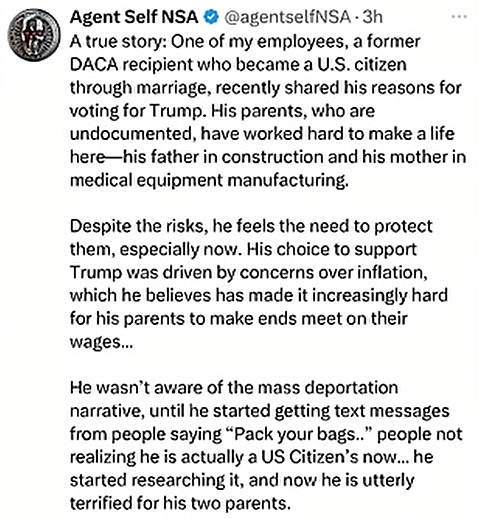

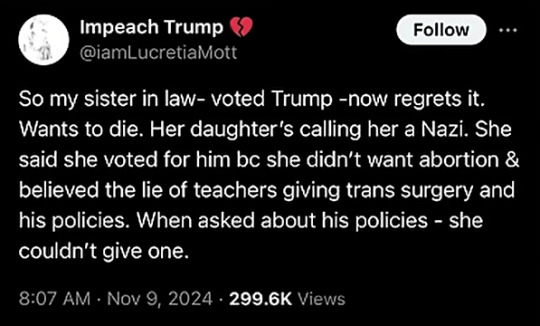

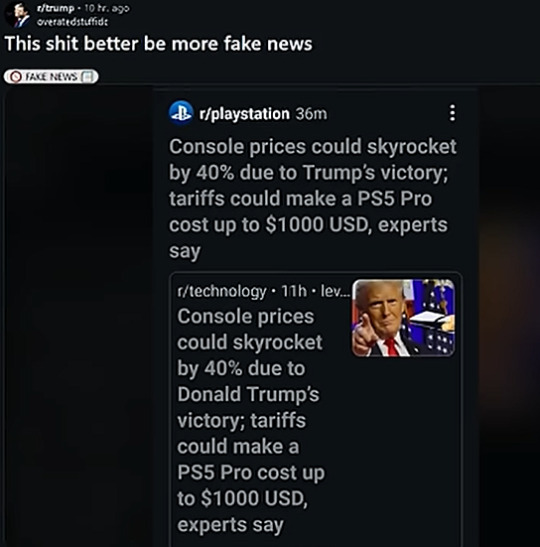


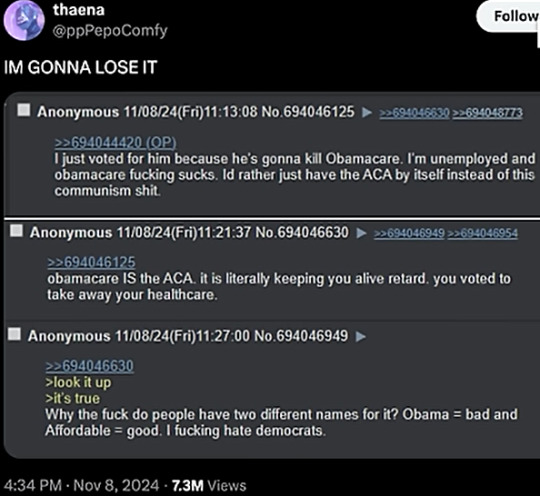
are we feeling the schadenfreude today?
#us politics#election 2024#leopards eating people's faces party#leopards ate my face#donald trump#economics#gay#lgbtqia#poc#trump tariffs#working class#immigration#aca#healthcare
1K notes
·
View notes
Text
Anything to protect big banks

#politics#us politics#political#donald trump#news#president trump#elon musk#american politics#jd vance#law#banks#banking#tellers#economic#economy#economics#wealth inequity#wealth redistribution#wealth inequality#wealth#middle class wealth#elizabeth warren#bernie sanders#democracy#democrats#republican#republicans#conservative#leftist#right wing
577 notes
·
View notes
Text
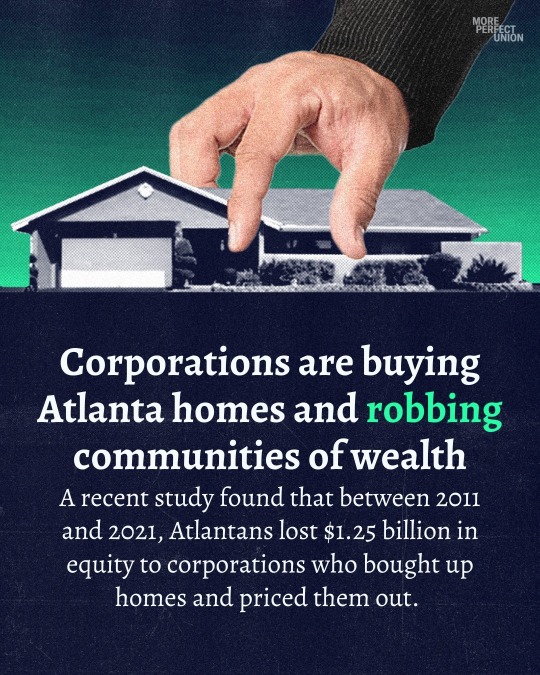
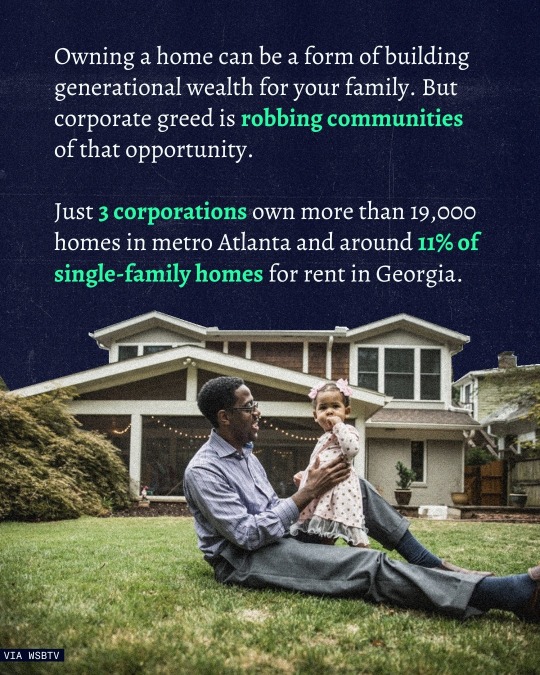
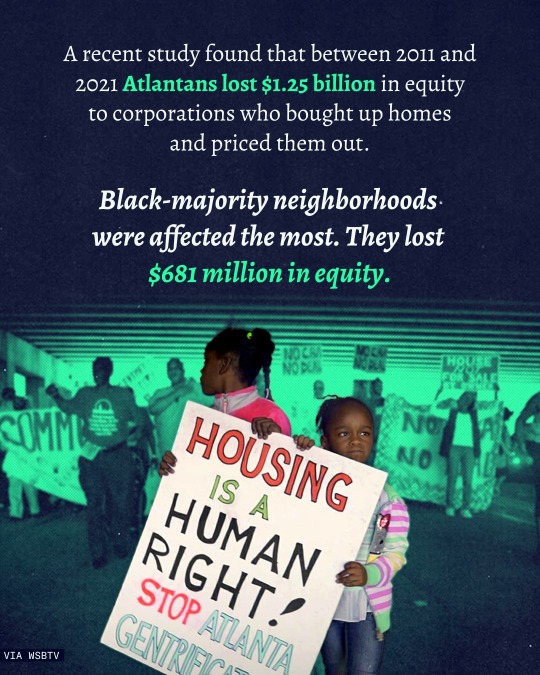
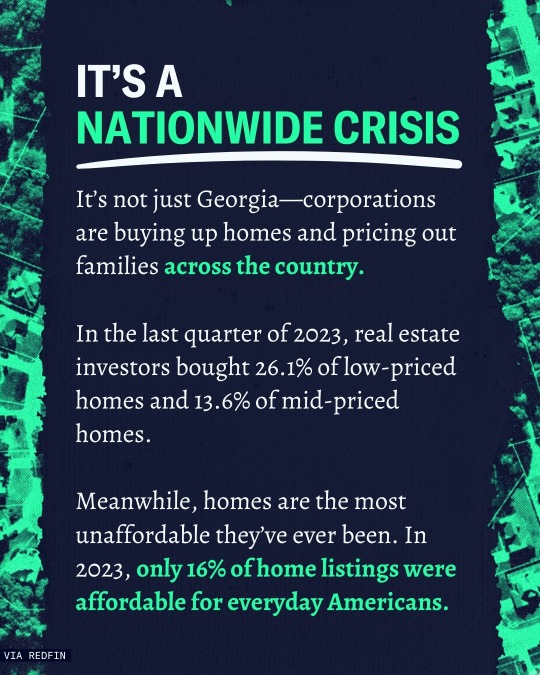
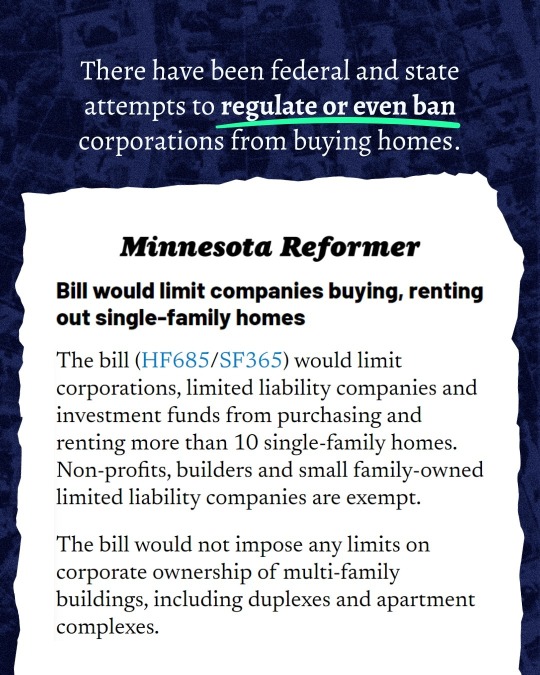
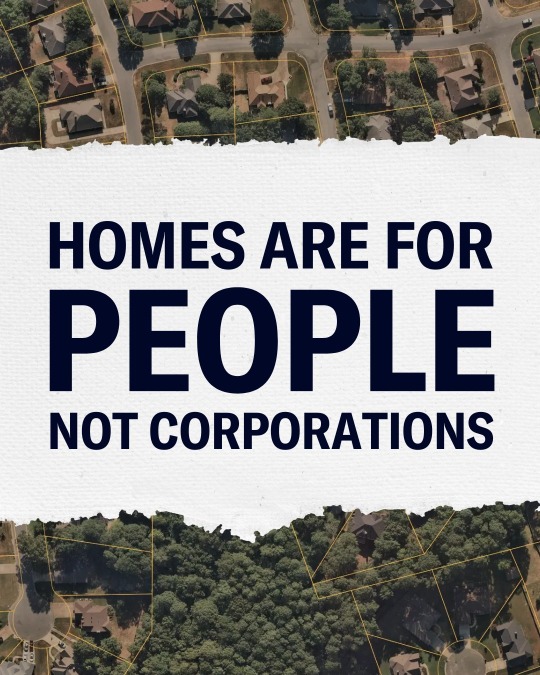



#housing inequality#corporate ownership#home equity#affordable housing#real estate market#wealth disparity#housing crisis#single-family homes#working-class families#corporate landlords#Georgia housing market#property investment#economic disparity#housing affordability#rental market#housing market inequality#corporate real estate#wealth gap#homeownership barriers#housing investment#financial disparity#real estate monopoly#housing affordability crisis#rental housing#economic inequality#property ownership#housing accessibility#corporate influence#affordable homeownership#investment firms in real estate
1K notes
·
View notes
Text
End-stage capitalism
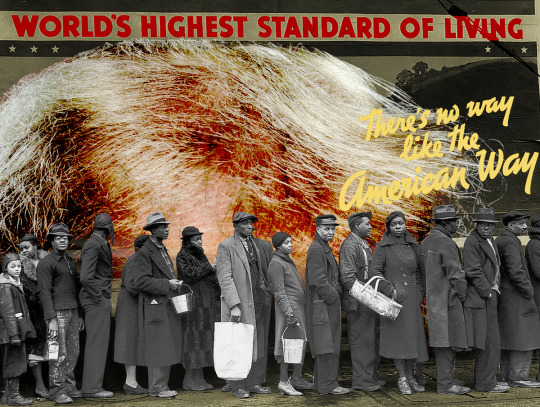
I'm on a 20+ city book tour for my new novel PICKS AND SHOVELS. Catch me in BLOOMINGTON TODAY (Apr 4), and in PITTSBURGH on May 15. More tour dates here.

Karl Marx predicted that capitalism would eventually fail, torn apart by its own contradictions. He called the bourgeoisie, who epitomized these contradictions, capitalism's "grave diggers":
https://www.nytimes.com/2022/10/31/books/review/a-spectre-haunting-china-mieville.html
In the Communist Manifesto, Marx and Engels marvel at capitalism's adaptability, its ability to reinvent itself in the face of seemingly terminal crises and emerge in a new form. For nearly two centuries, Marxists have treated capitalism as an intermediate stage between feudalism and socialism – a lengthy, but still impermanent, regime whose purpose was to produce the systems of plenty that socialism would deliver to democratic control.
But as capitalism lurched from crisis to crisis, some Marxists speculated that capitalism would give way to something even worse. In 2023, Yanis Varoufakis proposed that capitalism might end up being a transitional phase between feudalism and another kind of feudalism – technofeudalism:
https://pluralistic.net/2023/09/28/cloudalists/#cloud-capital
But Trump's disastrous policies – tariffs, suspension of the rule of law, pointless military expansionism – doesn't serve Varoufakis's technofeudalism or any other kind of feudalism. As Hamilton Nolan writes, Trump represents a rupture of the customarily unshakable class solidarity of the wealthy. Trump's policies are not good for business. Trump is going to make America much, much poorer – and since the vast majority of American wealth is held by a tiny minority of very rich people, any program that vaporizes an appreciable fraction of American wealth will make a lot of rich people a lot poorer.
Hamilton Nolan wrote about this a couple days ago, enumerating all the ways that Trump – who LARPed a TV businessman – is extremely bad for business:
https://www.hamiltonnolan.com/p/divergence-from-the-interests-of
Gutting state capacity
As Nolan writes, there are plenty on the right who don't care about the idea that public education produces the skilled workers needed to run and expand the economy, and who believe that paving half the national parks and putting a $500/day admission price on the remainder will suit them just fine. But even the most hardcore plutocrat needs a functional immigration system so they can source workers who can do the jobs Americans won't – or can't – do. You can't be a finance guy in a country with a collapsed, corrupt Treasury Department that periodically reaches into institutional bank accounts and drains them of millions in pursuit of "obscure witch-hunts":
“stupidly breaking the parts of the government that allow our financial markets to function smoothly with no apparent plan" is not “populism” any more than a bite from an alligator is a kiss
Ending the rule of law
Anyone who claims to love "free markets" loves the rule of law. The predictability of a laws-based society is a necessary precondition for capital formation, long-term investing, and the use of contracts to coordinate business within a transparent, known set of rules.
Trump's lavish corruption – his crypto companies (which someone called "a tipjar for the Oval Office"), his sale of commutations and pardons to flagrant criminals, and his purging of Democrats within the DoJ to create space for "buffoons" who run his witch hunts – all offer good reason for investors to stay the hell out of America, and for businesses to get the hell out of the country:
https://thehill.com/homenews/senate/5182515-senate-democrats-complaint-ed-martin/
The spectacle of the top executives of world's most powerful multinationals openly paying bribes to Trump, while seated at Trump's own members' club, makes an eloquent case for seeking your business opportunities in another country – practically any other country:
https://www.theguardian.com/us-news/2025/mar/05/trump-dinner-mar-a-lago
Then there's Trump's interference in the Fed, "endangering financial markets for short term political gain":
https://www.project-syndicate.org/commentary/trump-bid-to-control-fed-puts-us-economy-at-risk-by-kenneth-rogoff-2025-01
And finally, there's his defiance of federal court orders, and his attacks on law firms that employ lawyers who had the temerity to sue him. As Nolan writes, "This is not good for business." Sure, it's grimly satisfying to think about all those rich fools who howled because Biden had the temerity to suggest modest tax hikes and improvements to labor law now having to watch as "the world’s most sophisticated corporate legal regime [is replaced] with a system in which you must grovel at his toes in a ridiculous red hat in order to get anything done."
Military adventures
Trump is apparently going to go to war with Iran, Canada, Denmark, Mexico, and several other countries to be determined at a later date. Sure, America's military spending is higher than all the rest of the world's combined, but getting involved in several wars at once is – once again – not good for business. For one thing, he's going to kill Boeing, Lockheed, and all the other US-based arms dealers that rely on a friendly relationship with America's erstwhile allies for billions of dollars per year in business. Things are no better for the companies that do other kinds of business with the countries America is apparently on the brink of war with. This kind of "Hitlerian" program of economic growth was a failure in the previous century, and it will fail again:
Did Hitler’s wild invasions ultimate make Germany richer? No. They started a world war. And, no matter what anyone tells you, world war is not good for business.
Tariffs
Finally, there's Trump's deranged tariff plan. As David Dayen writes for The American Propsect, these aren't really tariffs at all – they're sanctions, punishments visited upon every country in the world (even uninhabited islands!) for a bunch of imaginary crimes:
https://prospect.org/economy/2025-04-03-theyre-not-tariffs-theyre-sanctions/
Trump's tariffs make no sense as an economic policy, but they are familiar to anyone who's spent time around organized crime (like, say, Trump):
https://www.politico.com/magazine/story/2016/05/donald-trump-2016-mob-organized-crime-213910/
Dayen likens Trump's approach to "a mob boss moving into town and sending his thugs to every business on Main Street, roughing up the proprietors and asking for protection money so they don’t get pushed out of business." Trump's demands – such as they are – include forcing America's trading partners to do away with their privacy, food safety and antitrust laws:
https://tacd.org/wp-content/uploads/TACD-Statement-Tariffs-3-April.pdf
Even if it was worth it for other countries to dismantle their laws to enjoy continued access to US markets (it isn't), no one trusts that giving in to Trump means that he'll carry out his end of the bargain. As Brad DeLong reminds us, Trump personally negotiated the USMCA terms that Canada and Mexico have been living under since he last left office, and those are the two countries he's most pissed off at:
https://braddelong.substack.com/p/draft-mar-a-lago-discord
This isn't capitalism – it's gangsterism. It's a system that will annihilate trillions of dollars in value to put billions of dollars in the pockets of Trump and a few of his cronies – at the expense of all the other rich people.
Nolan concludes that Trump is "insane" – that his actions are irrational, disconnected from reality, impossible to understand. For Nolan, the question isn't "What is Trump trying to accomplish?" It's "how has this insane man managed to gain control of the government of the world’s richest and most powerful nation?"
He's got a hell of an answer, too:
That, my friends, is the unfortunate outcome of an economic system that has so profoundly failed to enforce economic equality, and a political system that so profoundly failed to protect its democracy from the influence of capital that it allowed itself to be totally captured by extreme lunatics backed by extreme wealth.

If you'd like an essay-formatted version of this post to read or share, here's a link to it on pluralistic.net, my surveillance-free, ad-free, tracker-free blog: https://pluralistic.net/2025/04/04/anything-that-cant-go-on/#forever-eventually-stops
#pluralistic#late-stage capitalism#tariffs#class solidarity#class war#factionalism#gangsterism#conservativism#politics#trumpism#trump tariffs#economics
280 notes
·
View notes
Text
"Scandinavian countries maintain what sociologists call 'low power distance' cultures, where extreme wealth disparities and conspicuous consumption are regarded with suspicion rather than admiration. Status anxiety still exists, but the structural features of the economy take the edge off, making it easier for other prosocial values to emerge. It becomes possible to locate the value of solidarity over competition, social cohesion over social rank, efficiency over theatrical displays of work commitment, and leisure over performance.
By contrast, the United States has a culture of competitive individualism fostered by our winner-take-all economic system. Here, things that might otherwise be considered entitlements are almost always commodities instead. Every element of a decent life, from health care to shelter to education, is sold on the private market. The richer the person, the higher the bid, the better the living. Relaxation is a failure to grow wealth, which is in turn a failure to live well. It’s a remarkable perversion: capitalism has actually weaponized the concept of 'the good life' against the notion of doing what we want with our time.
When essential components of a dignified life are collectively guaranteed rather than individually bought and sold, 'the good life' ceases to be a function of wealth or a reward contingent upon endless work. Instead, it becomes a baseline expectation rooted in human dignity and social citizenship.
The Scandinavian countries got this way through sustained class struggle. Workers’ movements wrested control of productivity gains from capital, refusing to accept that increased efficiency should only benefit shareholders and executives. Ending unnecessary toil requires expanding economic democracy, not just relying on market rationality."
- Meagan Day, from "We Shouldn’t Have to Work This Hard." Jacobin, 23 March 2025.
#meagan day#quote#quotations#leisure#work#relaxation#class struggle#jobs#labor#democratic socialism#labor organizing#sociology#anthropology#work life balance#economics#neoliberalism#capitalism#the white lotus
317 notes
·
View notes
Text
{ MASTERPOST } Everything You Need to Know about Repairing Our Busted-Ass World
On poverty:
Starting from nothing
How To Start at Rock Bottom: Welfare Programs and the Social Safety Net
How to Save for Retirement When You Make Less Than $30,000 a Year
Ask the Bitches: “Is It Too Late to Get My Financial Shit Together?“
Understanding why people are poor
It’s More Expensive to Be Poor Than to Be Rich
Why Are Poor People Poor and Rich People Rich?
On Financial Discipline, Generational Poverty, and Marshmallows
Bitchtastic Book Review: Hand to Mouth by Linda Tirado
Is Gentrification Just Artisanal, Small-Batch Displacement of the Poor?
Coronavirus Reveals America’s Pre-existing Conditions, Part 1: Healthcare, Housing, and Labor Rights
Developing compassion for poor people
The Latte Factor, Poor Shaming, and Economic Compassion
Ask the Bitches: “How Do I Stop Myself from Judging Homeless People?“
The Subjectivity of Wealth, Or: Don’t Tell Me What’s Expensive
A Little Princess: Intersectional Feminist Masterpiece?
If You Can’t Afford to Tip 20%, You Can’t Afford to Dine Out
Correcting income inequality
1 Easy Way All Allies Can Help Close the Gender and Racial Pay Gap
One Reason Women Make Less Money? They’re Afraid of Being Raped and Killed.
Raising the Minimum Wage Would Make All Our Lives Better
Are Unions Good or Bad?
On intersectional social issues:
Reproductive rights
On Pulling Weeds and Fighting Back: How (and Why) to Protect Abortion Rights
How To Get an Abortion
Blood Money: Menstrual Products for Surviving Your Period While Poor
You Don’t Have to Have Kids
Gender equality
1 Easy Way All Allies Can Help Close the Gender and Racial Pay Gap
The Pink Tax, Or: How I Learned to Love Smelling Like “Bearglove”
Our Single Best Piece of Advice for Women (and Men) on International Women’s Day
Bitchtastic Book Review: The Feminist Financial Handbook by Brynne Conroy
Sexual Harassment: How to Identify and Fight It in the Workplace
Queer issues
Queer Finance 101: Ten Ways That Sexual and Gender Identity Affect Finances
Leaving Home before 18: A Practical Guide for Cast-Offs, Runaways, and Everybody in Between
Racial justice
The Financial Advantages of Being White
Woke at Work: How to Inject Your Values into Your Boring, Lame-Ass Job
The New Jim Crow, by Michelle Alexander: A Bitchtastic Book Review
Something Is Wrong in Personal Finance. Here’s How To Make It More Inclusive.
The Biggest Threat to Black Wealth Is White Terrorism
Coronavirus Reveals America’s Pre-existing Conditions, Part 2: Racial and Gender Inequality
10 Rad Black Money Experts to Follow Right the Hell Now
Youth issues
What We Talk About When We Talk About Student Loans
The Ugly Truth About Unpaid Internships
Ask the Bitches: “I Just Turned 18 and My Parents Are Kicking Me Out. How Do I Brace Myself?”
Identifying and combatting abuse
When Money is the Weapon: Understanding Intimate Partner Financial Abuse
Are You Working on the Next Fyre Festival?: Identifying a Toxic Workplace
Ask the Bitches: “How Do I Say ‘No’ When a Loved One Asks for Money… Again?”
Ask the Bitches: I Was Guilted Into Caring for a Sick, Abusive Parent. Now What?
On mental health:
Understanding mental health issues
How Mental Health Affects Your Finances
Stop Recommending Therapy Like It’s a Magic Bean That’ll Grow Me a Beanstalk to Neurotypicaltown
Bitchtastic Book Review: Kurt Vonnegut’s Galapagos and Your Big Brain
Ask the Bitches: “How Do I Protect My Own Mental Health While Still Helping Others?”
Coping with mental health issues
{ MASTERPOST } Everything You Need to Know about Self-Care
My 25 Secrets to Successfully Working from Home with ADHD
Our Master List of 100% Free Mental Health Self-Care Tactics
On saving the planet:
Changing the system
Don’t Boo, Vote: If You Don’t Vote, No One Can Hear You Scream
Ethical Consumption: How to Pollute the Planet and Exploit Labor Slightly Less
The Anti-Consumerist Gift Guide: I Have No Gift to Bring, Pa Rum Pa Pum Pum
Season 1, Episode 4: “Capitalism Is Working for Me. So How Could I Hate It?”
Coronavirus Reveals America’s Pre-existing Conditions, Part 1: Healthcare, Housing, and Labor Rights
Coronavirus Reveals America’s Pre-existing Conditions, Part 2: Racial and Gender Inequality
Shopping smarter
You Deserve Cheap Toilet Paper, You Beautiful Fucking Moon Goddess
You Are above Bottled Water, You Elegant Land Mermaid
Fast Fashion: Why It’s Fucking up the World and How To Avoid It
You Deserve Cheap, Fake Jewelry… Just Like Coco Chanel
6 Proven Tactics for Avoiding Emotional Impulse Spending
Join the Bitches on Patreon
#poverty#economics#income inequality#wealth inequality#capitalism#working class#labor rights#workers rights#frugal#personal finance#financial literacy#consumerism#environmentalism
1K notes
·
View notes
Text
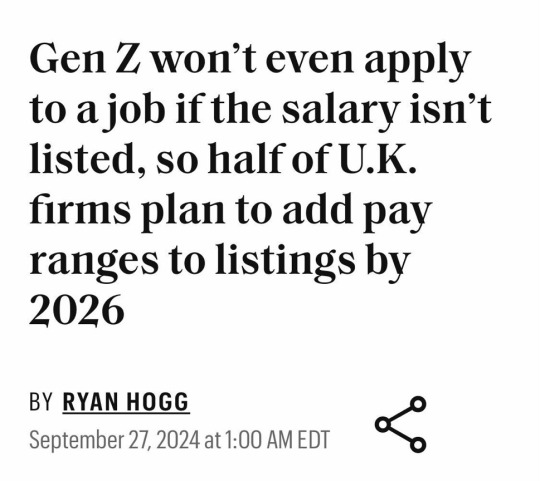

Source
Good
#capitalism#government#economic inequality#the left#progressive#gen z#working class#twitter post#current events#eat the rich#end capitalism#news#socioeconomic inequality#workers rights
37K notes
·
View notes
Text

#tariffs#working class#meme#trump#politics#government#us politics#America#USA#donald trump#democracy#republicans#democrats#GOP#American politics#aesthetic#election#beauty-funny-trippy#Washington DC#maga#vote#voting#presidential election#activism#middle class#economy#economics#business#memes#instagram
156 notes
·
View notes
Text

Nothing more expensive than being poor.
Digital illustration of the back of a person's jacket. There's a James Baldwin quote that reads, "Anyone who has ever struggled with poverty knows how extremely expensive it is to be poor'
#art#feminism#feminist#poverty#class#economic justice#fight poverty not the poor#capitalism#james baldwin#social justice#intersectionality
1K notes
·
View notes
Text
Robert Reich | Trump’s tariffs will result in a massive transfer of wealth from working people into the hands of millionaires and billionaires.
Here’s how.
#politics#the left#progressive#progressive movement#capitalism#tariffs#trump#trade war#economics#robert reich#video#economic inequality#inequality#working class#taxes#recession
181 notes
·
View notes